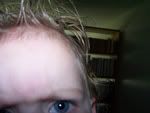
Mother-Talk recently asked me to review The Ten Year Nap. I was more than happy to oblige.
The Ten Year Nap, by Meg Wolitzer, was far more than I expected. Amy, the main character, is the mother of a ten year-old son, Mason, and wife of Leo, a lawyer. Her days are busily aimless and she feels somewhat out of control of her life. She had been a lawyer, at the same firm as her husband, but law was not her passion. In fact, she's starting to wonder if she has a passion at all when it comes to work. One section, towards the end of the book, really summed up Amy's struggles: "I expected things of myself," said Amy. "But not everyone is that driven. And not everyone is really that talented. And also," she said, "sometimes it's too difficult to make it happen.... I feel good.... Good enough." Then she said,"I don't know why I haven't found it. I thought I was going to."
This resonated with me because I have similar doubts and often look back at my younger self, when I thought I had it all sussed out, thought I knew where I was going to be and who I was going to be and now things are very, very different. Not bad, just...different.
The theme of this book, of well-educated women who decide to opt out of a career in order to stay home with their children, is one that is debated ad nauseum in the press and online. The Mommy Wars are almost a cliche, but in Wolitzer's hands, they become intimate and personal; I felt like I understood, almost, why these women fell into the SAHM role, in the way that I almost understand algebraic equations. I can see it, I get it, but I can't quite explain it. It's just there. It just is.
For me, this was a book of longing. All the women in the book seem to be longing for something they don't have. Amy, the excitement she sees in her friend's affair. Jill, for her daughter to have the average intelligence she sees in her friends' children. Roberta, for artistic inspiration to come back full throttle, after her long absence from it. But most of all, they all long to be seen as people, as valued, valuable people, far more than "just" a stay-at-home mother.
I thought it would bother me that these women couldn't find contentment in staying at home with their children. Having been a stay-at-home mum for the last 2 years, I can understand this urge to get away. An urge I only expect to get stronger once my children are in school full-time. The way that Wolitzer describes the dilemma, the back-and-forth of should I or shouldn't I work was spot on, something I've found myself thinking with increasing frequency.
But there is also the conundrum of what to do for work, that, as Amy thinks, work doesn't make you interesting, interesting work makes you interesting. So, what to do? Find a job that's just a job, that just brings in a paycheck each week? Or find something that grabs you, that makes you feel alive and vibrant and excited each morning?
I found this book fascinating. The women in this book who stayed at home almost seemed to be doing it as a backlash against the feminist movement, as though they were saying "We don't need to break down barriers, we want to stay at home with our children."
I doubt that this book will put an end to the Mommy Wars, but it goes a long way to showing both sides of the coin, that both choices are valid and valuable ones and that maybe, just maybe, we shouldn't be passing judgment on each others choices and instead, just accept them for what they are: choices.






